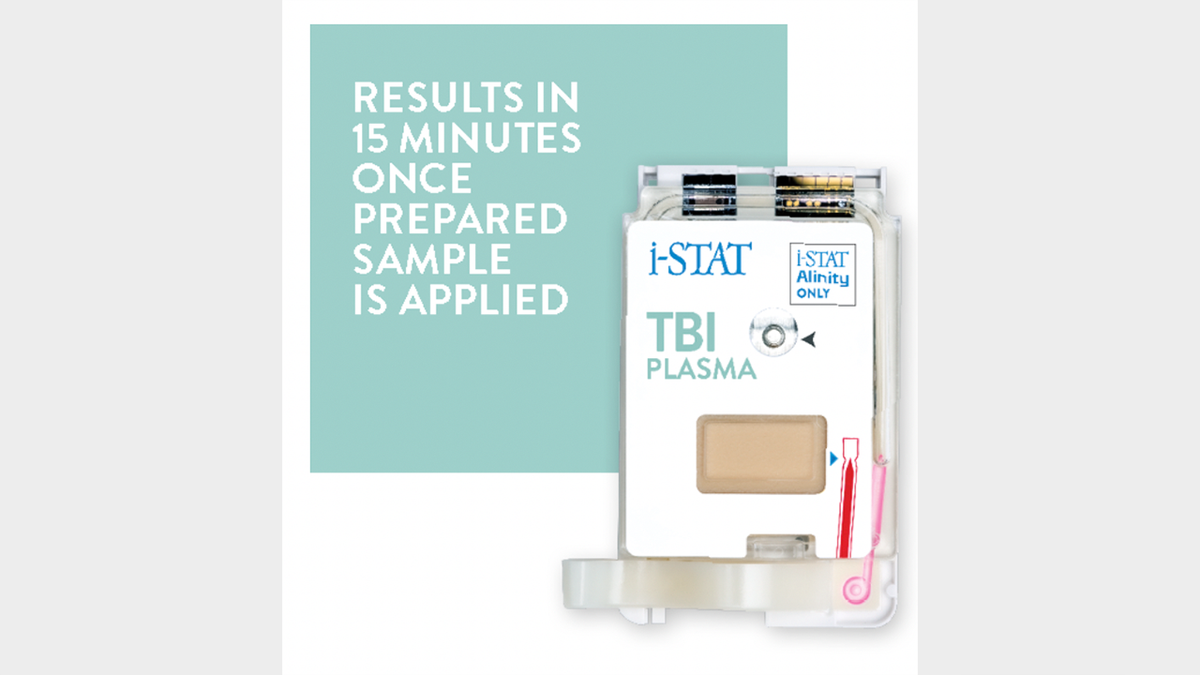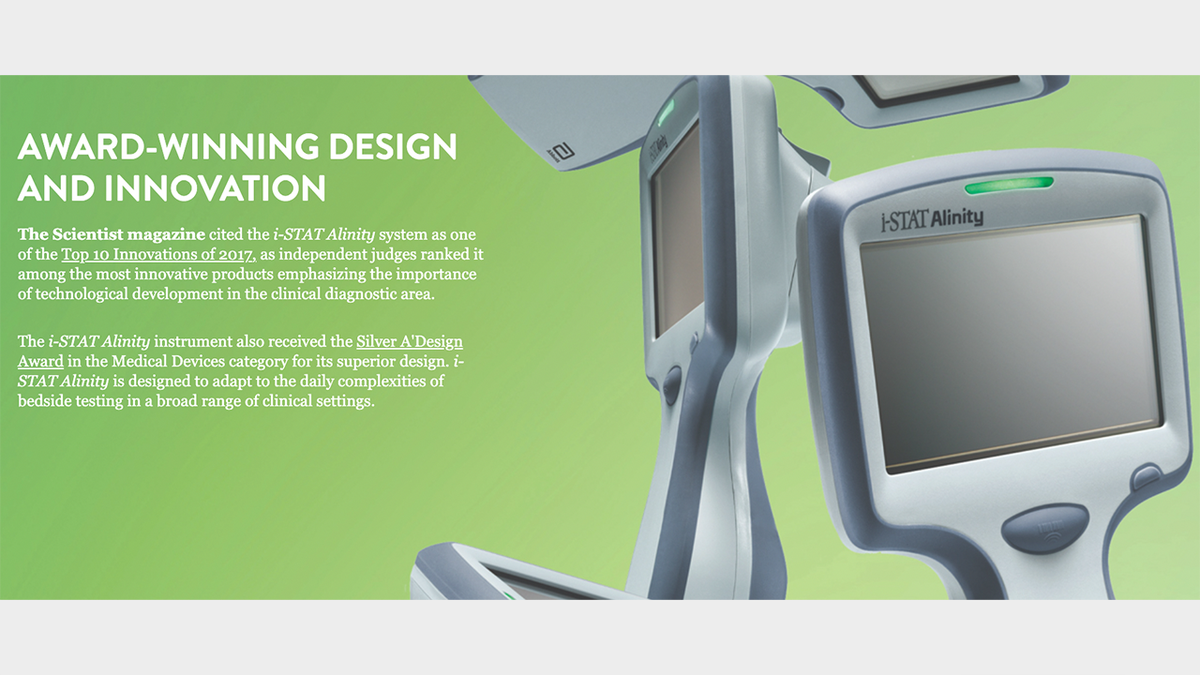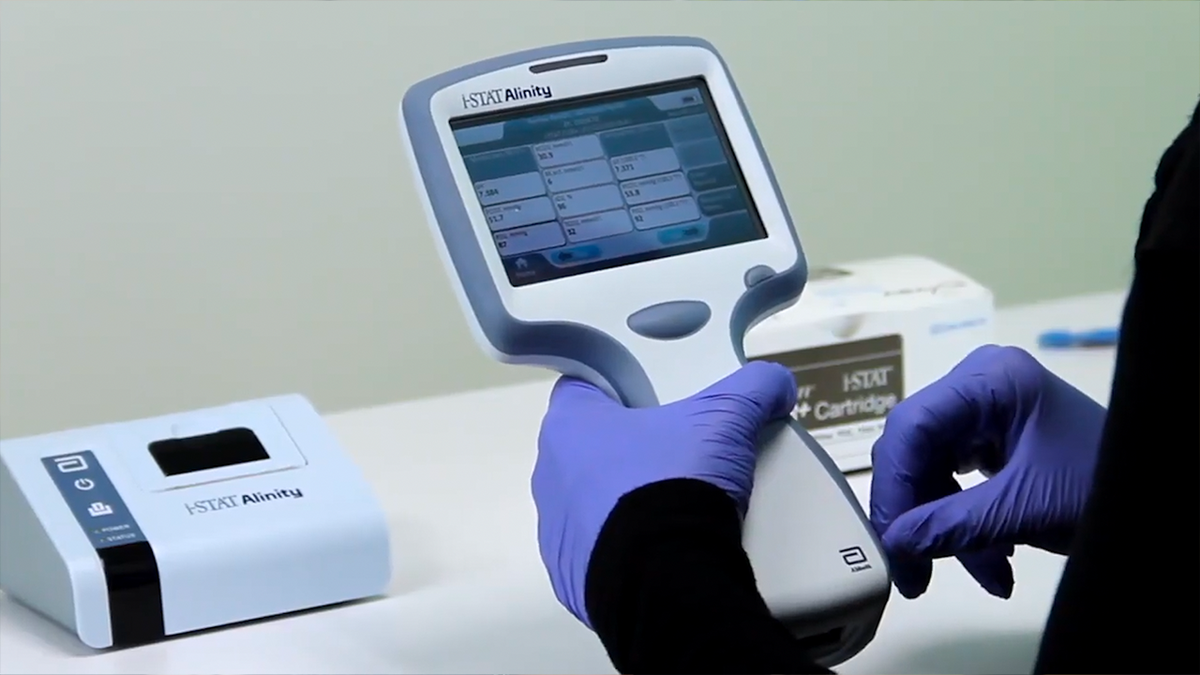Abbott previews new handheld plasma test that can detect minor concussions
Dr. Chris Davlantes, the senior director of Global Medical Affairs at Abbott says the test uses two biomarkers to determine the presence of a traumatic brain injury.
A breakthrough technology developed by Abbott could help assess victims of mild traumatic brain injuries (TBIs) and help inform the treatment of concussions caused by participation in contact sports, mechanical falls, car accidents, and more.
The American medical devices and health care company, during an appearance at CES 2023 in Las Vegas, provided Fox News Digital with key insights into the next generation i-STAT Alinity TBI plasma test, the first rapid handheld traumatic brain injury blood test to aid in clinical assessments of patients suspected of mild TBIs, including concussions.
Chris Davlantes, a board-certified Emergency Medicine physician and a senior Director of Global Medical Affairs at Abbott, said the portable tester can provide results within 15 minutes, making it the first FDA-approved product providing an objective method of assessing concussions.
ASTRAZENECA GETS EU BACKING FOR TARGETED BREAST CANCER THERAPIES

The plasma cartridge inserted into the i-STAT Alinity, which can produce results on minor traumatic brain injuries in 15 minutes. (Abbott)
"It actually measures two different biomarkers on the same cartridge," Davlantes told Fox News Digital. "One of them jumps almost immediately after the brain injury, within 10 to 20 minutes, the other one stays around and goes up a little bit later but lasts up to 72 hours."
The two biomarkers analyzed by the test are glial fibrillary acidic protein (GFAP) and ubiquitin carboxyl-terminal esterase L1 (UCH-L1).
Davlantes was quick to dispel common misconceptions about TBIs, mainly regarding the assumption that most invisible brain injuries are caused by contact sports, such as American football.
"We’ve had football players that have suffered concussions, but the truth is that most concussions happen to the general public, and they’re actually from mechanical falls and car accidents—and some from domestic violence," Davlantes said. "Sports injuries are a smaller percentage of concussions."
DEVICE TAPS BRAIN WAVES TO HELP PARALYZED MAN COMMUNICATE

A page on the i-STAT Alinity's innovation and technology awards in healthcare. (Abbott)
While nearly 5 million emergency room visits a year are attributed to head injuries, 40% of all concussions are caused by simple slips and falls. Furthermore, concussions resulting from sporting events are on the decline.
The i-STAT Alinity test optimized specifically for minor TBIs measures the proteins present in a patient’s blood following the injury. A negative result on the test would be used in conjunction with a neurological assessment by a doctor to rule out the need for a computerized tomography (CT) scan of the head. Research is suggesting that a positive result would complement clinical evaluation and may have prognostic value in determining who needs close follow up for their concussion. It may also be useful in the assesment and prognosis of those suffering from moderate to sever TBIs as well.
Davlantes added that a CT scan is done to detect other kinds of injuries, bleeding in the brain, or skull fractures, but not necessarily a TBI.
"The majority of the time, 90% of the time when we do a CT scan for someone who had a head injury the CT scan is normal—but they still may have a concussion," he said.
DAMAR HAMLIN’S CPR AFTER CARDIAC ARREST: HOW TO PERFORM CPR AND POTENTIALLY SAVE A LIFE

A physician uses the i-STAT Alinity next to its charging base and a box of cartridges. (Abbott/Zoetis)
Abbott claims that the availability of the new test in the ER could reduce unnecessary CT scans by up to 40%, thus freeing up more room and lowering wait times at hospitals.
The company is also in the process of developing a whole blood test, eliminating the need for plasma separation, and providing a more convenient testing solution that can be used outside advanced healthcare settings, such as the sidelines of a sporting event.
The test, which is approved for use within 12 hours of minor head injury and ages 18 and older was developed with collaboration between Abbott and the U.S. Department of Defense. The latter has been looking into objective detection and evaluations of TBIs for more than 10 years to assess brain injuries in military personnel and pass it on to the civilian population.










































